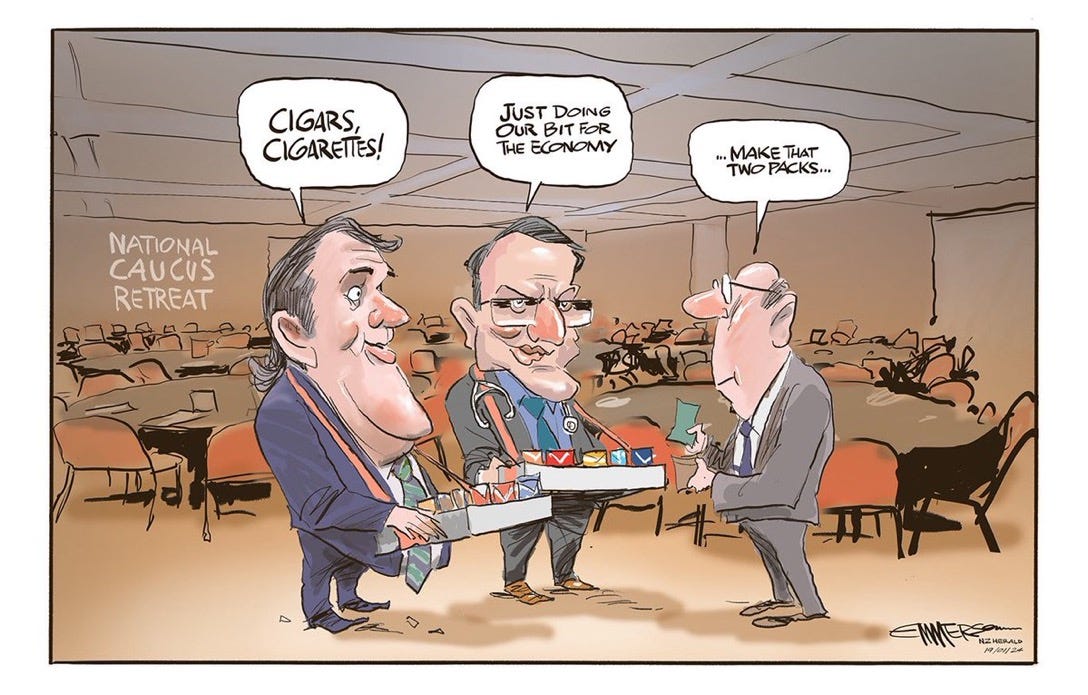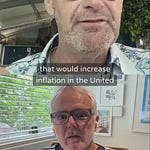TL;DR: The five things that mattered in Aotearoa’s political economy that we wrote and spoke about via The Kākā and elsewhere for paying subscribers in the last week included:
The new National-ACT-NZ First coalition Government shut down the Auckland ‘Light’ Rail project to avoid spending up to $29.2 billion over decades, which was the right decision for the wrong reasons and still leaves the Government liable for unachieved emissions reductions and without congestion-reducing solutions for unplanned population growth running at over 3% per annum. Monday’s Dawn Chorus.
We decided The Kaka would stay on Substack. Tuesday’s email and podcast.
Business confidence surged in the December quarter as the change of Government was confirmed, reinstating a pro-National bias in confidence about the wider economy over Labour to nearer the 27 percentage-point long-run average. Wednesday’s Dawn Chorus
The Government ruled EV owners would have to pay the same RUCs as diesel vehicles and the same road taxes as vehicles with double-cab-ute-type fuel economy, doubling down on the pain of losing the Clean Car Discount rebate and effectively encouraging drivers to buy heavier diesel utes. Thursday’s Dawn Chorus.
PM Christopher Luxon and the National caucus finally returned from their summer holidays for an offsite retreat and the Government will hold its first cabinet meeting of the year on Monday, which is the same fourth week in January that Labour usually started back. Luxon had promised to start earlier than Labour. This week’s hoon above.
What we talked about on ‘The Hoon’ on Thursday night
In this week’s podcast above of the weekly ‘Hoon’ webinar for paying subscribers at 5pm on Thursday night:
5.00 pm - 5.10 pm -
and Peter Bale opened the show with a discussion staying on Substack.5.10 pm - 5.20 pm - Bernard, Peter and
talked about the record temperatures in 2023 and the social science problems behind failing to reduce climate emissions; and,5.20 pm - 6:00 pm - Peter, Bernard, and
talked about the 3% GDP per capita recession last year, the Government’s slow start, Aotearoa-NZ’s stance on Gaza and Nauru’s flip to supporting China over Taiwan.
The Hoon’s podcast version above was produced by Simon Josey.
This is a sampler for all free subscribers. Thanks to the support of paying subscribers here, I’m able to spread the work from my public interest journalism here about housing affordability, climate change and poverty reduction around in other public venues. I’d love you to join the community supporting and contributing to this work with your ideas, feedback and comments. We have a couple of special offers on at the moment.
Other places I appeared this week
I talked to Water NZ CEO Gillian Blythe for When The Facts Change via The Spinoff about the water infrastructure crisis.
We also produce this 5 in 5 with ANZ daily podcast and Substack for ANZ Institutional in Australia, which you can sign up to via Spotify and Apple and Youtube for free.
Chart of the week
Aotearoa-NZ’s GDP per capita fell at GFC-type rate in 2023

Cartoon of the week
A Caucus retreat

Ka kite ano
Bernard












Share this post